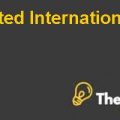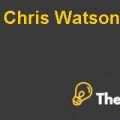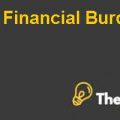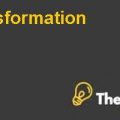Abstract:
The following case is about an internet service provider company, Log on America Inc. (LOA) established in 1992, with the purpose of providing online services to both type of customers, commercial and residential. Started with providing simple internet services,LOA evolved into a reasonably huge service provider expanding its roots to Telecom and PBX products. With continuous pace of increasing trend, LOA expand through a number of acquisitions and finally decided to take a next level step, which was to provide a fast speed internet service to sub-urban regions.
To accomplish the task, LOA went into an agreement with Nortel Networks, to purchase an $8,000,000 worth of equipment. In order to finance the purchase, LOA’s financial advisor, Credit Suisse First Boston (CSFB) advised LOA to issue convertible debts. Hence,the convertible preference stocks as designed by CSFB were issued in Feb 2000 to four major preferable holders.
Shortly after the issue, LOA’s share price fell significantly. LOA blamed the holders of convertibles for this fall, and claimed the fall a result of manipulation through short selling and a law suit was filed against these four preferable stock holders. After few months LOA realized that CSFB’s also played LOA and tricked LOA in selling convertibles to one of its subsidiaries “Marshal” thus another law suit was filed in Jan 2001 demanding CSFB for $100,000 as remedy for misguide. As at Jan 2001, both cases are still pending for final judgment from court meanwhile LOA facing continuous decline in its market capitalization.
Log Of America Inc Harvard Case Solution & Analysis
1. What are the advantages and disadvantages, exante, of the floating rate convertible stock, relative to debt financing, equity financing or convertibles with a fixed conversion price?
Comparison of Convertible Stocks:
Convertible stocks are a form of debts, which comes with a conversion option. They can be preferred stocks or bonds, and are available to be converted into other securities (typically equity) after a predefined period.
Advantages:
A debt finance exposes the company to the risk of high gearing. Typical debt finance is issued with fixed interest rates for a fixedperiod and requires thecompany to pay back the cash (principle plus interest) as predefined the contract.
In equity financing, on the other hand, the issuer is not liable to pay back cash. Neither thereis a fixed interest or expiring period. But the equity raise is seen as a threat by existing investors, as more equity means more partners and lesser ratio in profits.
As many convertibles are issued and redeemed at market price, others are converted at a fixed conversion price defined at the time of issue. Fixing a conversion price can be considered risky if there are reasonable chances that future share price will exceed the contractual price.
Unlike. debt and equity financing, convertibles stockcomes with a switch option. This benefits the company, seeking to raise finance and at the same time avoiding disputes with investors over building the equity in current terms.Also, the option of floating rate (instead of fixed rate) enables thecompany to avoid paying extra interest when themarket interest rate is low..............
This is just a sample partial work. Please place the order on the website to get your own originally done case solution.













